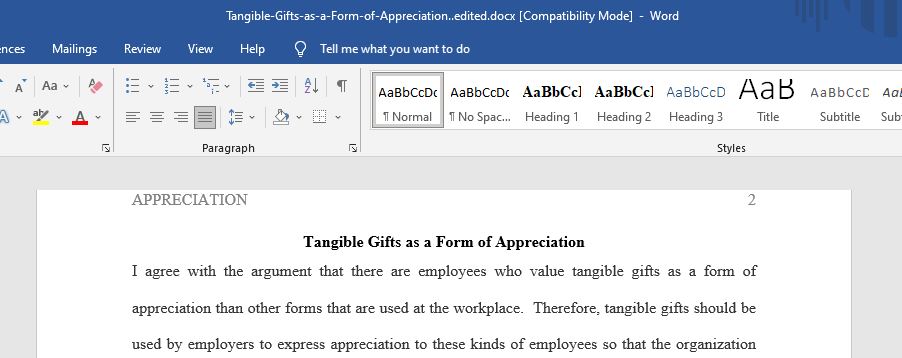Tangible Gifts as a Form of Appreciation
The fact remains that there are a number of people who still value receiving tangible gifts as an expression of appreciation. If we totally remove gift giving from the list of interacting with others, then we are at risk for not communicating appreciation or encouragement in ways that are meaningful to these team members. As a result, our words of affirmation, spending time with them, or helping them out on projects will not really meet the need they feel to be valued. With this being said, that person has to be motivated differently in the workplace. The best way to motivate a person whose Language of Appreciation is Appreciation is to give them gifts that they desire or like. For example, if the employee favorite team is the Yankees, the best way to motivate them is to tell them that they may receive tickets to the game. This will motivate them so much because they would love to go and see their favorite team, which will make them work harder to get those tickets. According to Chapman and White (2012), “Giving the right gift to a person who appreciates tangible rewards can send a powerful message of thanks, appreciation, and encouragement” (p. 84). The fact that that employee is obsessed with the Yankees, the tickets would be a perfect gift to motivate them. Just because a person loves tangible gifts does not mean that they only communicate by receiving things. This means that they are motivated and feels appreciated from his or her workplace by receiving things that they like as a reward.
Reference
Chapman, G. D., & White, P. E. (2012).The 5 languages of appreciation in the workplace: Empowering organizations by encouraging people. Chicago: Northfield Pub. 9
Answer preview:
Word: 190

